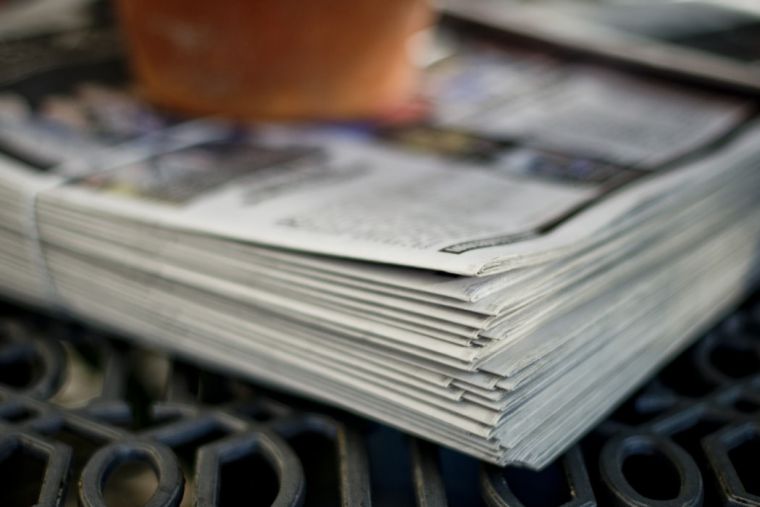A timely look at truth and trust in the news

An important exhibition opens at the British Library in London this week. It's an exhibition taking a timely look at the news and the role it plays in our society – and I'm looking forward to visiting it.
It opens as 'the news' has never been more contentious and, sadly, the public's trust in journalists – in the UK and around the world – remains low.
Yet the reports coming out of Russia of how the Ukraine war is being falsely portrayed by government-run media, and the increasing persecution of journalists by totalitarian states across the globe show the importance of a free press to the flourishing of democracy.
As Christians, we have a special calling to stand up for truth, and to support those journalists and news organisations seeking to communicate that truth – often in the face of violence, threats and murder.
I've been involved in a project, based in the Anglican Diocese of St Albans, north of London, for the past several years, looking at post-truth, fake news and disinformation. We have brought together a wide group of people to examine issues around post-truth, and to help to formulate a Christian response.
Key findings include the importance of keeping conversations going including with people with whom we disagree, being willing to ask questions about what we are being told, and to refuse to succumb to cynicism. Most importantly, to stand for truth in a climate of mounting disinformation.
So I welcome the exhibition, 'Breaking the News', that opens on Friday 22 April and runs until 21 August. It is the British Library's first major exhibition to spotlight the role news plays in our society, exploring issues of choice, interpretation, truth and trust in the news.
The British Library – the UK's national library, based in Euston, London – explains: "From the earliest surviving printed news report in Britain on the Battle of Flodden to smashed hard drives used by The Guardian to store Edward Snowden's hard files and an original BBC radio script of the D-Day landings, 'Breaking the News' will go beyond physical newspapers to examine the role news plays in our lives."
The Library says the exhibition "will interrogate what makes an event news, what a free press means, the ethics involved in making the news, what objective news is and how the way we encounter news has evolved.
"Delving into the biggest collection of news heritage in the UK, housed by the British Library, these pressing issues will be set against the backdrop of more than five centuries of news publication in Britain through newspapers, newsreels, radio, television, the internet and social media."
The exhibition is supported by Newsworks, the marketing body for the UK's national news publishers. They describe their mission as "championing the importance of a free press and leading collaboration across the industry to support the future for trusted journalism." Its members include the Guardian, Telegraph and News UK newspaper groups.
The British Library exhibition aims to prompt big questions about the news we consume including:
How do your opinions and beliefs influence the news you choose?
When does news become propaganda?
Why do we devour crime stories and sensationalism?
Who decides which stories to suppress and which to spotlight?
At a time when the global trustworthiness of journalists ranks at only 23 per cent – with only bankers, business leaders, advertisers, government ministers and politicians ranking beneath them – it's time for Christians and all people of faith and goodwill to look at how they receive their news, and how they view it.
Churches such as St Bride's Church in Fleet Street, London, have long had a ministry to journalists and others working in the media. Organisations like Christians in Media support Christians working in media in all its forms.
Making a visit to this high-profile exhibition could be the first step in re-evaluating the importance of reliable news sources and the role Christians could play in supporting diverse and trustworthy media.
Rev Peter Crumpler is a Church of England minister in St Albans, Herts, UK, a former communications director with the CofE, and the author of 'Responding to Post-truth' (Grove Books).











